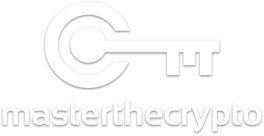This article is a guide to Bitshares blockchain protocol, exploring various protocol-level characteristics. This is the fourth article in the Guide to Blockchain Protocols: Comparison of Major Protocol Coins series.
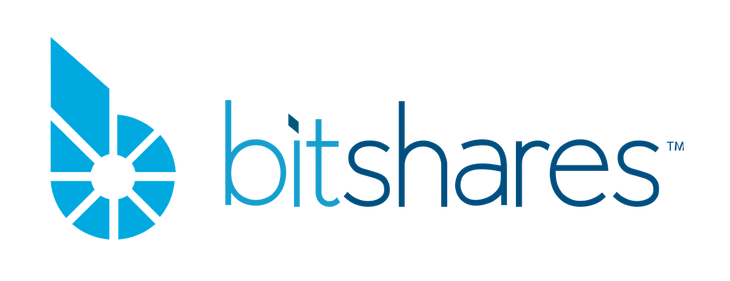
Bitshares is a decentralised financial platform providing a high-performance asset exchange for trading cryptocurrencies without the need for any intermediaries or central authority. Bitshares has a utility token called BTS, functioing as a native medium-of-exchange within the ecosystem and can also be used as collaterals for loans. Bitshares is founded by Dan Larimer, a prominent figure in the blockchain space who invented the Delegated Proof-of-Stake consensus algorithm that is used by Bitshares. Dan also co-founded Steemit and EOS.
Bitshare Platform
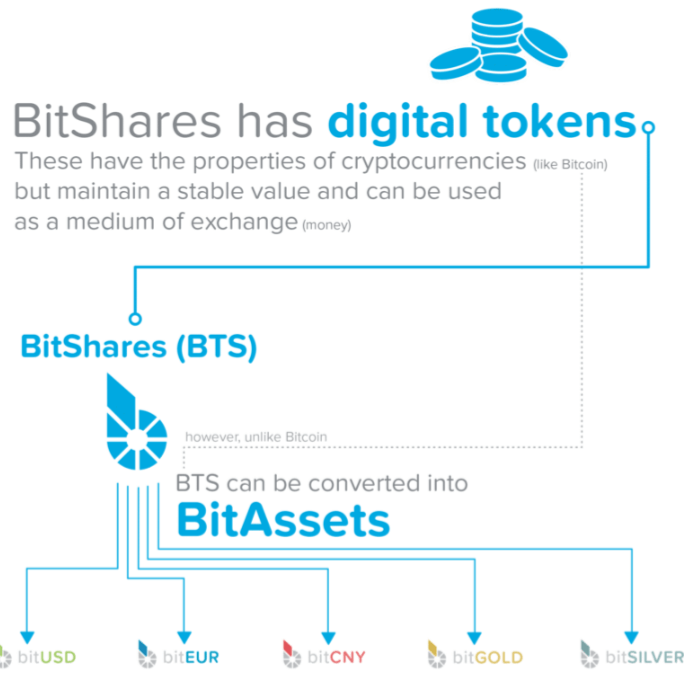
(Source: Coincentral)
The BitShares platform allows users to convert various cryptocurrencies into stable assets by converting them into tokens that are backed by real assets, such as the US dollar-denominated bitUSD. In the Bitshare ecosystem, this token is called “Smartcoins”, where the value of the token is algorithmically adjusted to that of the real assets; that can include major fiat currencies, precious metals or stocks of a company.
The Bitshare token (BTS) will always support the notional value of smartcoins – of at least 200% of its value – which can be converted at any time as collateral in a loan managed by smart contracts. The unique selling point of Bitshare’s platform is that counterparty risk is absent while loans are backed by collaterals. This is achieved by allowing the network (and software protocol) to secure collateral and perform settlements. (Read more: Analyzing Cryptocurrency Risk: Existing Coins vs ICO)
Here is a detailed look at the key characteristics of Bitshares:
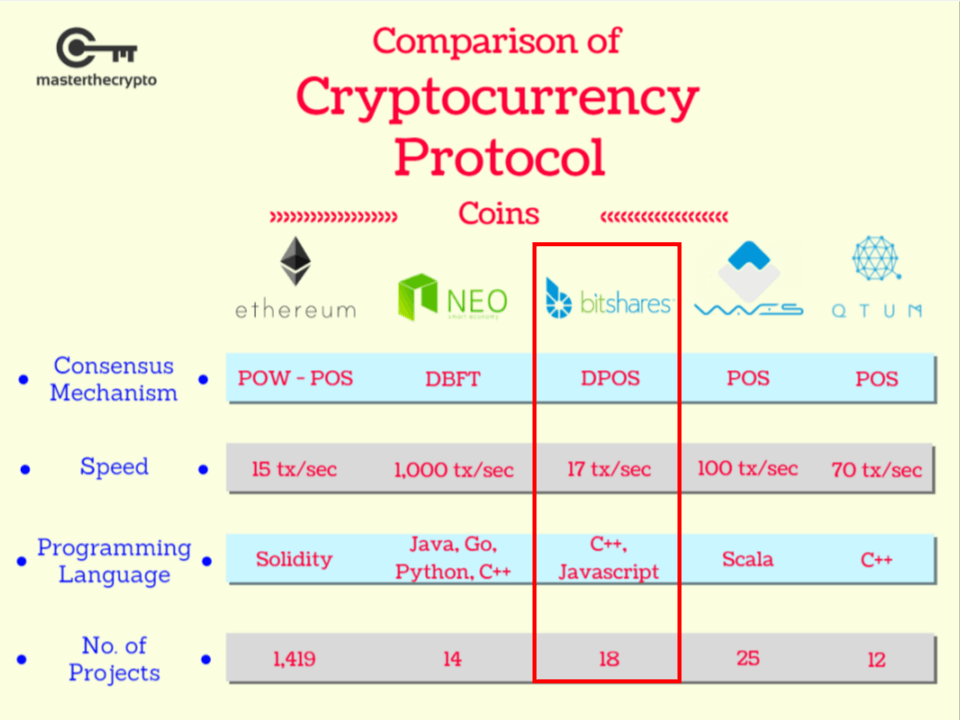
Consensus Mechanism
The consensus mechanism for Bitshare’s protocol is Delegated Proof-of-Stake (DPOS), which allows for more efficiency and reduced costs as compared to a POW algorithm but requires a higher reliance of trust in the system. Using the DPOS system, Bitshares transactions are near instant with extremely low fees, with an infrastructure that can scale to the capabilities of centralized payment processors such as Visa and Paypal.
DPOS leverages the power of coin-holders approval voting to resolve consensus issues in a democratic and fair way. Bitshares DPOS model uses a reputation mechanism that allows holders of Bitshare coins to vote for a panel of trusted, block-producing nodes that will be responsible for creating blocks in the network. This requires a degree of trust toward the block-generating nodes (also called ‘witnesses’). The witnesses’ tasks are to group the transactions that have been broadcasted to the network into “blocks” and add them to the blockchain. The block production is performed in a round-robin pattern to ensure that every node has the opportunity to produce one block per round. Each witness is paid for every valid block it produces while those witnesses that have bad intentions and act against the network would be kicked out of the panel, ensuring that their block-generating capabilities are stripped away to secure the system.
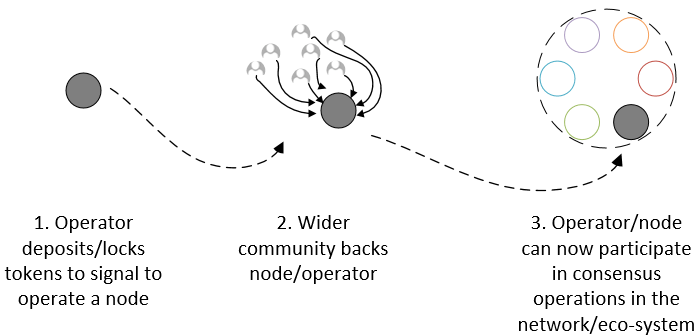
It is important to note that coin-holders’ influence is directly proportional to the number of coins they own; the more coins they own equates to a higher number of votes in the voting process.
(See more: Coins, Tokens & Altcoins: What’s the Difference?)
Transaction Speed
Bitshares protocol has the capabilities of supporting 17 transactions per seconds (tps) on average. Bitshares launched Graphene technology in their version 2.0 update in 2015, which exponentially enhanced Bitshare’s blockchain theoretical capacity to 100,000 tps. After further assessing the claim, it was found that the 100,000 tps were achieved without signature verification or hashing.
Programming Language
The Bitshare protocol was written using C ++ and JavaScript. The underlying technology that powers Bitshares is called Graphene, an open-sourced system that can reduce significantly reduce bandwidth in the block propagation process. The Graphene source code is available in numerous variations, as it has been forked and adapted many times. The original release is managed by an organization known as Cryptonomex. Graphene is interesting since it is modular in nature, making it adaptable to many different uses. Graphene technology has the capabilities for massive scalability, potentially supporting hundreds and thousands of transactions per second.
Traction
There are currently 18 working projects created on Bitshare’s protocol. In terms of developer’s ease of use, Bitshares has a higher barrier to entry due to its policy decision. The Graphene implementation in Bitshares is well-designed for blockchains that do not allow random codes from users to be executed on the network, without explicit approval from stakeholders. The disadvantage to this is that it adds a layer of uncertainty and friction to businesses and developers building on its protocol.
(See also: Guide to Valuing Cryptocurrency: How to Value a Cryptocurrency)
Beneficial Resources To Get You Started
If you're starting your journey into the complex world of cryptocurrencies, here's a list of useful resources and guides that will get you on your way:
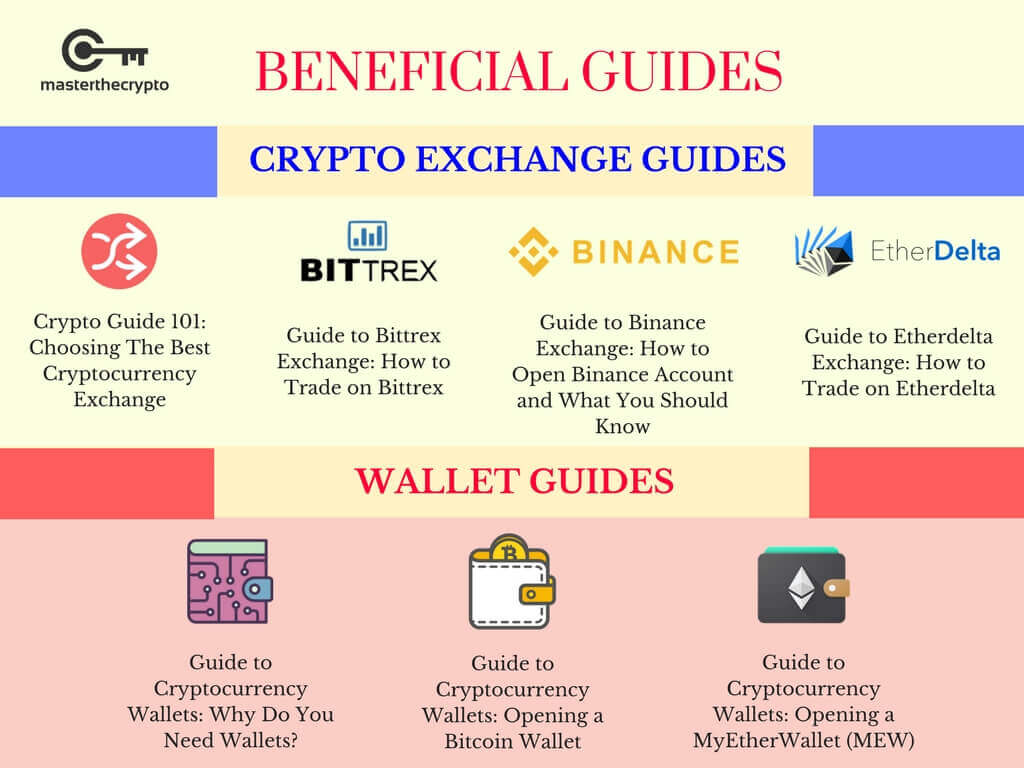
Trading & Exchange
- Crypto Guide 101: Choosing The Best Cryptocurrency Exchange
- Guide to Bittrex Exchange: How to Trade on Bittrex
- Guide to Binance Exchange: How to Open Binance Account and What You Should Know
- Guide to Etherdelta Exchange: How to Trade on Etherdelta
- Guide To Cryptocurrency Trading Basics: Introduction to Crypto Technical Analysis
- Cryptocurrency Trading: Understanding Cryptocurrency Trading Pairs & How it Works
- Crypto Trading Guide: 4 Common Pitfalls Every Crypto Trader Will Experience
Wallets
- Guide to Cryptocurrency Wallets: Why Do You Need Wallets?
- Guide to Cryptocurrency Wallets: Opening a Bitcoin Wallet
- Guide to Cryptocurrency Wallets: Opening a MyEtherWallet (MEW)
Read also: Guide to Margin Trading & Derivatives: Are Cryptocurrency Exchanges Really Manipulating? and Guide To Cryptocurrency Trading Basics: Do Charts & Technical Analysis Really Work?
Get our exclusive e-book which will guide you on the step-by-step process to get started with making money via Cryptocurrency investments!
You can also join our Facebook group at Master The Crypto: Advanced Cryptocurrency Knowledge to ask any questions regarding cryptos!

I'm Aziz, a seasoned cryptocurrency trader who's really passionate about 2 things; #1) the awesome-revolutionary blockchain technology underlying crypto and #2) helping make bitcoin great ‘again'!

